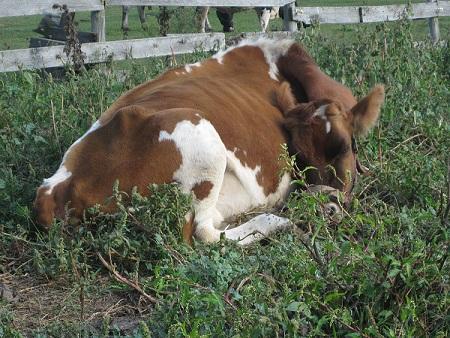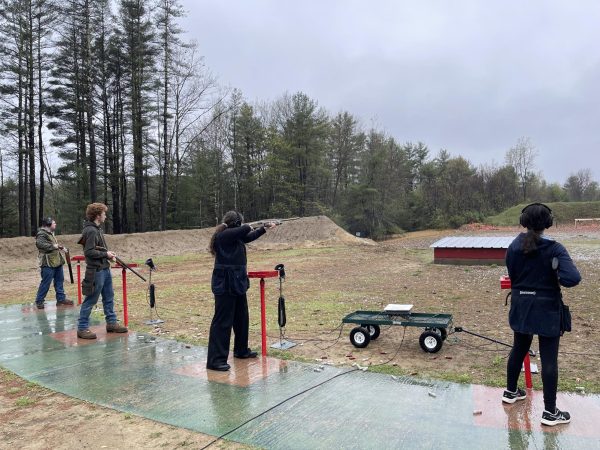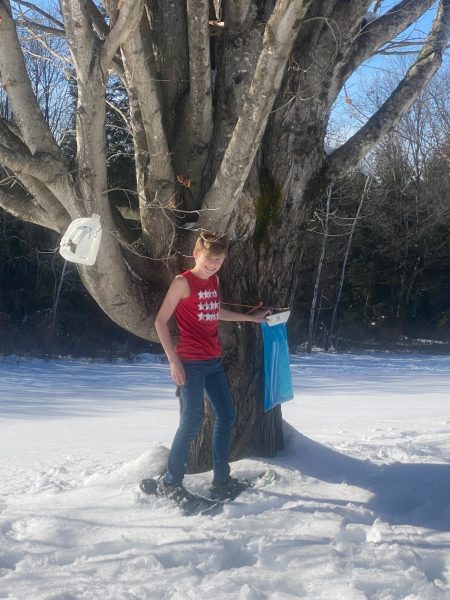Hay There!

September 30, 2012
When the average person hears the word, dairy, they often associate it with black and white cows and their claim to fame, milk. In reality, dairy farming is more than the cow and her by-products. Dairy farming is a complex and real business that touches the lives of virtually every person in the country, every day. This holds true whether you consume or purchase dairy products or not.
According to the New York Animal Agriculture Coalition, dairy farming is the number 1 agricultural industry in New York and NY ranks third behind California and Wisconsin for overall milk production. There are nearly 6,000 operating dairy farms in NY that house over 1.4 million cattle. Together, these farms and their cattle produce nearly 12 billion pounds of milk and add $1.9 million to the state’s economy, per year. In addition, NY has 115 dairy plants that produce hundreds of millions of pounds of cheese, butter, yogurt, cottage cheese and ice cream each year. For communities, dairy farming allows for new jobs to be generated. Cornell University estimates that for every job opened on a dairy farm, another 1.24 jobs are created in that farm’s community. In dairy processing, it is estimated that for every new job created in a processing plant, an additional 4.72 jobs are developed as a result. Without dairy farming, the food supplies, natural landscapes and local taxes would all be greatly affected, and not in a beneficial way.
Today’s dairy farms are much different from the dairy farms of 50+ years ago. In part from a growing population, technological advances and the need to meet higher demands and quality, dairy farming has grown from simply being a way to provide food and extra income for a single family into a global multi-billion dollar industry. Unless you visit an Amish farm, you’d be hard-pressed to find a dairy farmer that milks by hand while sitting on a three-legged stool, and even this is subject to exceptions. New and more efficient technologies and products are being developed for the dairy industry every day, and range from a medication used to treat common ailments to state-of-the-art milking devices that go beyond simply collecting milk from a cow. Today’s dairy farms are established to make profit and work to stay afloat amidst a down economy, just like any other business. The animals and people must overcome situations and issues that arise, some that can be easily fixed and others that could put the existence of the entire farm at stake. Whether the herd size is 50 or 1,100, the mission is the same for all, produce the products to the highest standard of quality possible while keeping the welfare of people, animals and the environment in mind at all times.
Next time you happen to drink a glass of milk, eat ice cream, or perhaps find yourself passing by a pasture of grazing cows, think twice to how you perceive the dairy business. Not every farm is operated by a straw hat and overall-clad country folk and the dairy products you may use on a daily basis are not produced for the heck of it. Dairy farming is a real and important business that involves hard work, dedication, passion and sacrifice to succeed, just like any other business, large or small. Do not think it’s a job that can easily done by any person? All those associated with the dairy industry will be the first to show you this is horrendously far from the truth. If you were, for a day, taken from your normal routine and placed on a dairy farm, it would not take you long to figure out the complexity of the business, no matter what position you assume. Dairy farming is more than cows and milk, and due to its impact, it deserves respect. Just because it’s agricultural doesn’t mean it’s any less exceptional.













Hannah Bramer • May 8, 2013 at 5:48 pm
nice job…. love dariy cows
Mrs. Halligan • Oct 3, 2012 at 9:32 am
Nice article Alana. I sent it to Mr. Cahan. He loved it too.
Cindy Colby • Oct 2, 2012 at 7:48 am
Nice job Alana. I’m looking forward to the next article!